If you’re a dog owner, you know that they can be very convincing when it comes to food. Those adorable begging eyes can make it hard to say no, especially when you’re sitting down with a bowl of warm and comforting chicken noodle soup. Can dogs eat chicken noodle soup? The short answer is yes! As long as it’s homemade and doesn’t contain harmful ingredients.
It’s only natural to wonder if your furry friend can enjoy some too. While dogs are carnivorous by nature and thrive on a diet of protein and fat, there are certain human foods that can be safe for them to eat in moderation.
Chicken noodle soup is one such food that many dog owners have offered their pets as an occasional treat. But before you start pouring some soup into your pup’s bowl, here’s what you need to know about feeding your dog chicken noodle soup.
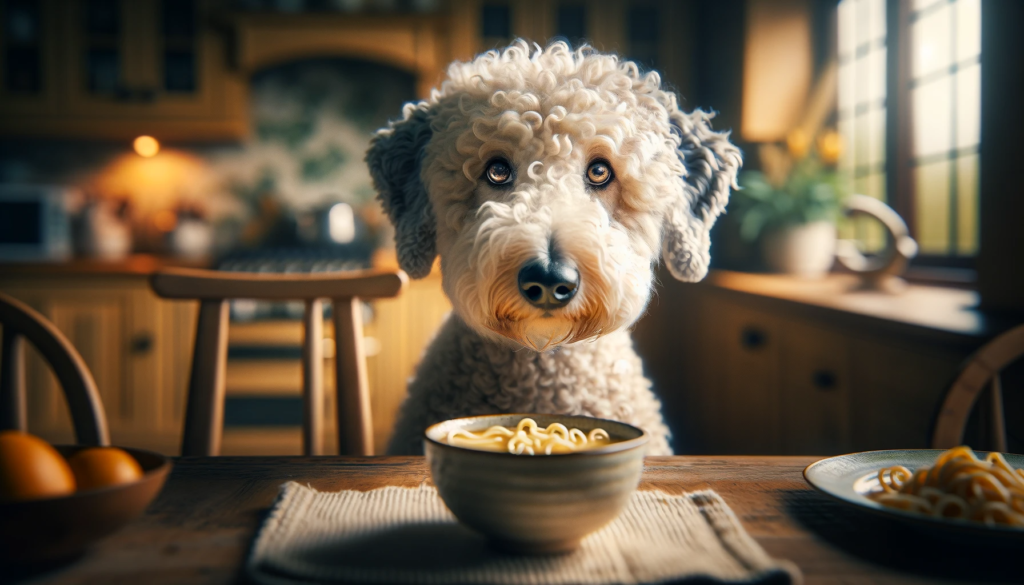
Why It’s Important to Know If Dogs Can Eat Chicken Noodle Soup
As much as we love our dogs and want to share everything with them, not all human foods are safe for our furry friends. Some foods can cause gastrointestinal upset, while others can be toxic and even deadly in large quantities. This is why it’s important for dog owners to know what foods are safe for their pets.
When it comes specifically to chicken noodle soup, knowing if your dog can eat it or not could save you from a trip to the vet. While small amounts of this dish may be harmless or even beneficial for dogs in certain situations, there are some ingredients in the soup that could cause health problems if consumed in large quantities or over time. So let’s dive into the debate and find out whether or not your four-legged pal can enjoy this classic comfort food alongside you.
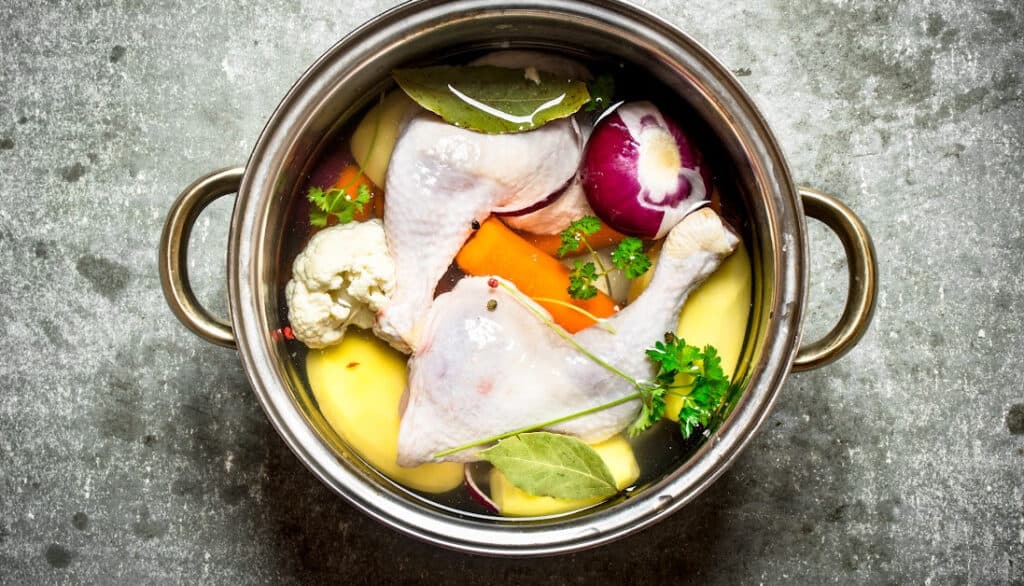
Can Dogs Eat Chicken Noodle Soup?
Chicken noodle soup can be a nutritious addition to your dog’s diet, but it requires careful selection. Chicken offers protein for muscle and immune support, while the broth provides hydration and essential minerals.
However, commercial soups may contain excessive sodium or preservatives harmful to dogs. Always opt for a low-sodium, natural ingredients version. Avoid onions and garlic as these can be toxic to dogs in large amounts.
Homemade soup is a good alternative, but omit these ingredients. While the soup can boost nutrition and hydration, moderation is key to prevent potential digestive issues like diarrhea or upset stomach.
Remember, dogs’ digestive systems differ from ours. If in doubt about adding chicken noodle soup to your dog’s diet, seek advice from a veterinarian who can guide you based on your dog’s specific needs.
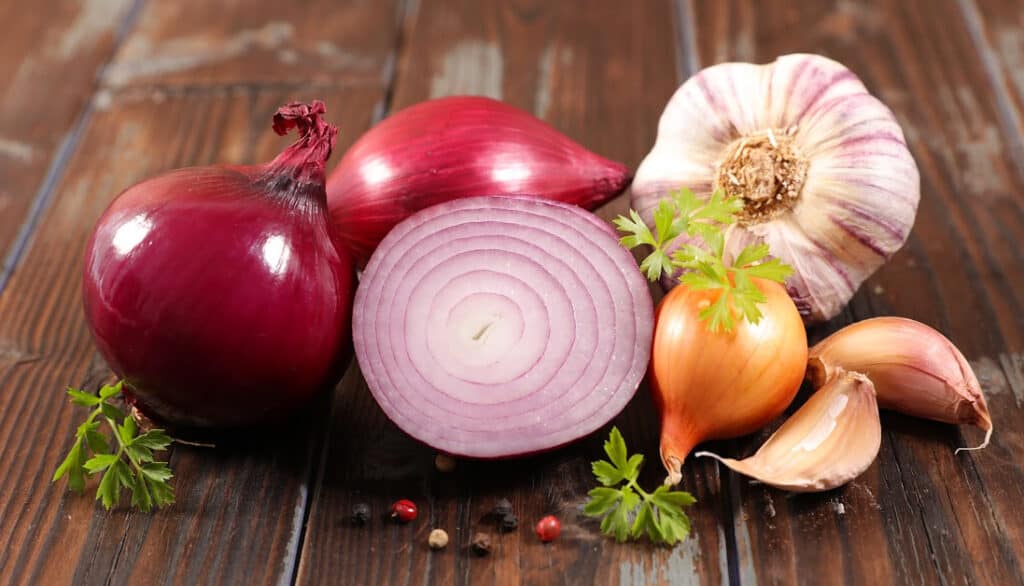
What Ingredients Should You Look Out For?
Onions and Garlic are Toxic to Dogs
Chicken noodle soup usually contains onions and garlic, which can be harmful to dogs. These ingredients contain compounds that can damage the red blood cells of your furry friend.
Even small amounts of these vegetables, in any form (cooked or raw), can be toxic to your dog. The symptoms of onion and garlic toxicity include vomiting, diarrhea, lethargy, increased heart rate, and even collapse.
In severe cases, it may lead to anemia or organ damage. If you suspect that your dog has ingested either of these ingredients, consult your veterinarian immediately.
Other Ingredients that May Cause Harm to Dogs
Apart from onions and garlic, there are several other ingredients in chicken noodle soup that might cause harm to your dog. For instance: Salt: Excess salt intake can lead to dehydration in dogs.
Moreover, some store-bought soups have high sodium content which can be dangerous for dogs suffering from heart or kidney problems. Spices: Chicken noodle soup often contains several spices such as black pepper or paprika which might not agree with your dog’s stomach.
Additives: Some canned soups contain additives like xylitol or MSG which can cause digestive issues in pets. It’s best always to read the ingredient label before feeding your dog anything new – including chicken noodle soup – just to make sure it doesn’t contain anything harmful.
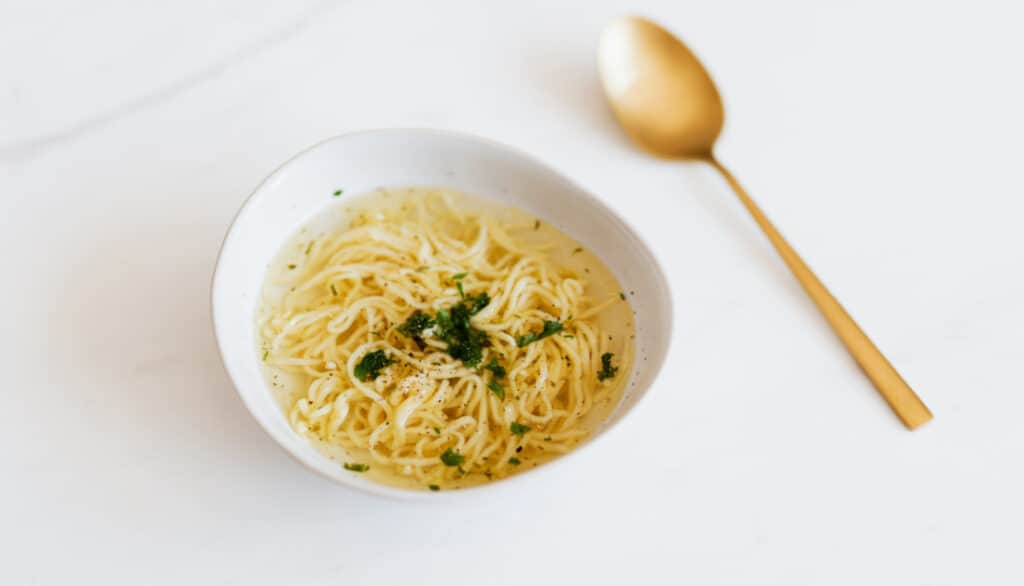
Cooking Your Own Soup for Your Dog
If you’re making soup at home for yourself but want also want it safe for your pet pooch; leave out onions and garlic entirely. Instead of using spices like black pepper or paprika use ginger instead as it is generally safe for dogs in small quantities.Turmeric is another great spice to use in moderation because of its anti-inflammatory properties which can help with joint pain. It’s also essential to avoid using any toxic vegetables or herbs like chives, scallions, or leeks.
Stick to simple ingredients like chicken meat, carrots, celery, and rice – all of which are safe and nutritious for dogs. While chicken noodle soup may be a comforting food for humans during cold weather or when feeling under the weather; it’s vital always to consider whether it’s safe for your furry friend.
Avoid serving store-bought soup altogether as they often have high sodium content and other dangerous additives. If you want your dog to enjoy a bowl of chicken noodle soup with you; it’s best to make it at home using ingredients that are safe for them.
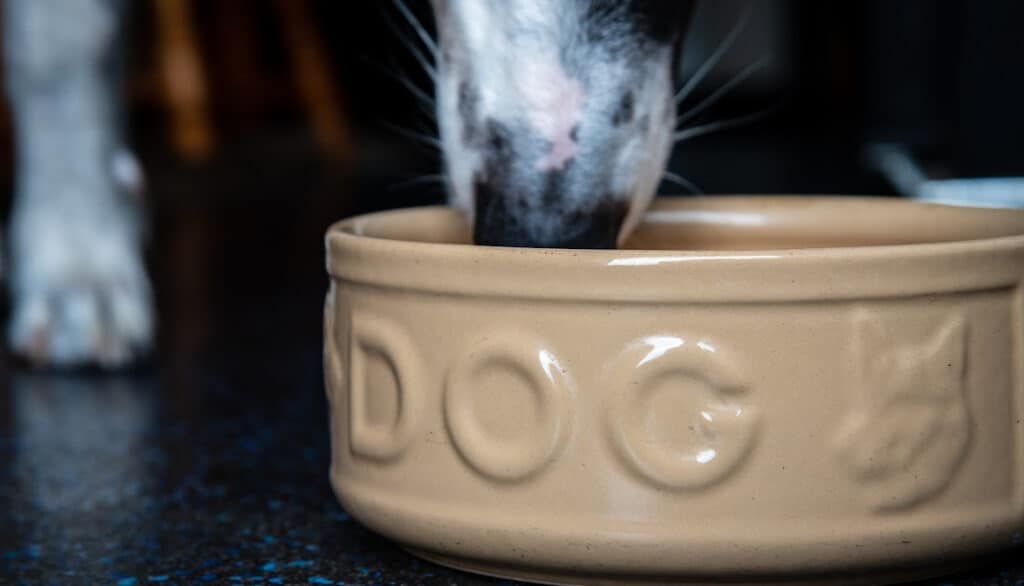
How Much Chicken Noodle Soup Can You Give Your Dog?
As with any human food, it’s important to give chicken noodle soup to your dog in moderation. While it can be a healthy option for your furry friend, too much of it can lead to an upset stomach or even obesity.
Therefore, portion control is key when feeding your dog this delicious soup. The amount of chicken noodle soup you can give your dog depends on their size and weight.
Generally, smaller dogs require less food than larger ones. A good rule of thumb is to give your dog no more than 10% of their daily calorie intake in the form of chicken noodle soup.
To determine how much chicken noodle soup is appropriate for your dog, start by calculating their daily calorie intake based on their weight and activity level. Then, use that number to calculate how much soup they should have per serving.
For example, if your dog needs 500 calories per day and you want to give them 10% of that in the form of chicken noodle soup, each serving should be no more than 50 calories. It’s also important to consider the ingredients in the chicken noodle soup when determining how much to feed your dog.
If the recipe includes high-fat ingredients like cream or butter, you’ll need to adjust the serving size accordingly. Additionally, if the soup contains any ingredients that are toxic or harmful for dogs (such as onions or garlic), you’ll need to exclude those from the recipe altogether.
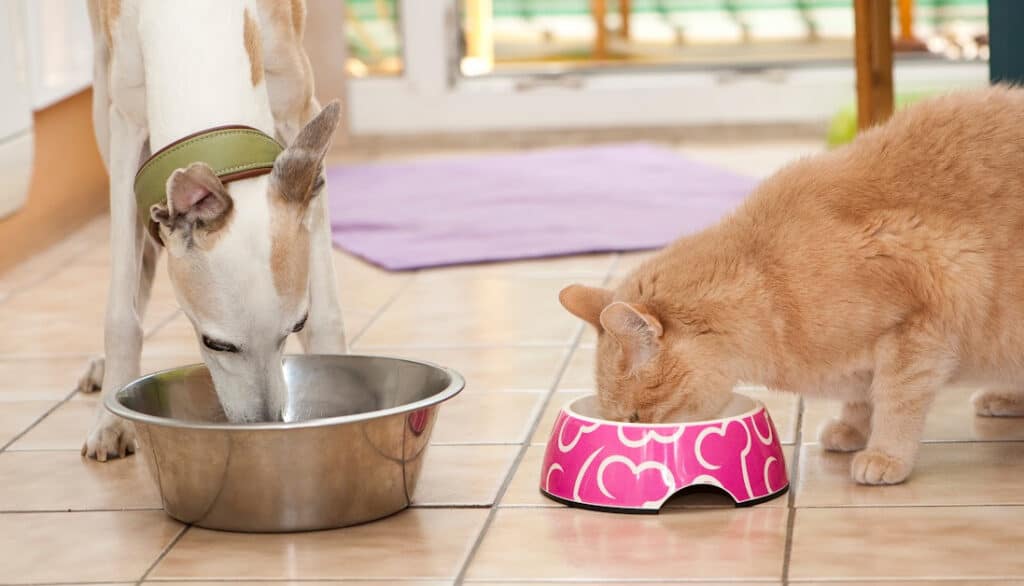
Portion Control is Key
When preparing chicken noodle soup for your dog, portion control is crucial. Avoid overfeeding them by measuring out proper servings with a kitchen scale or measuring cups.
If you’re unsure about how much food you should be giving them per serving or how often they should be fed throughout the day, consult with a veterinarian who can provide guidance based on your dog’s specific needs. Keep in mind that feeding your dog too much chicken noodle soup can lead to digestive issues like vomiting, diarrhea, and stomach upset.
How Much is Too Much?
It’s important to remember that while chicken noodle soup is a healthy option for dogs in moderation, too much of it can be harmful. Overfeeding your dog can cause problems like obesity, pancreatitis, or stomach problems. Additionally, feeding your dog too much sodium (which is present in many store-bought soups) can cause dehydration and other health issues.
As a general rule of thumb, avoid giving your dog more than 10% of their daily calorie intake in the form of chicken noodle soup. Ultimately, it’s best to consult with a veterinarian before introducing any new human food into your dog’s diet.
They will be able to recommend appropriate portion sizes and offer advice on how often you should feed your furry friend this delicious soup. While chicken noodle soup can be a healthy option for dogs when fed in moderation, portion control is key.
Be sure to calculate the appropriate serving size based on your dog’s weight and activity level, and avoid overfeeding them to prevent digestive problems or other health issues. Consult with a veterinarian if you’re unsure about how much chicken noodle soup to feed your furry friend or if they have any underlying health conditions that might affect their dietary needs.
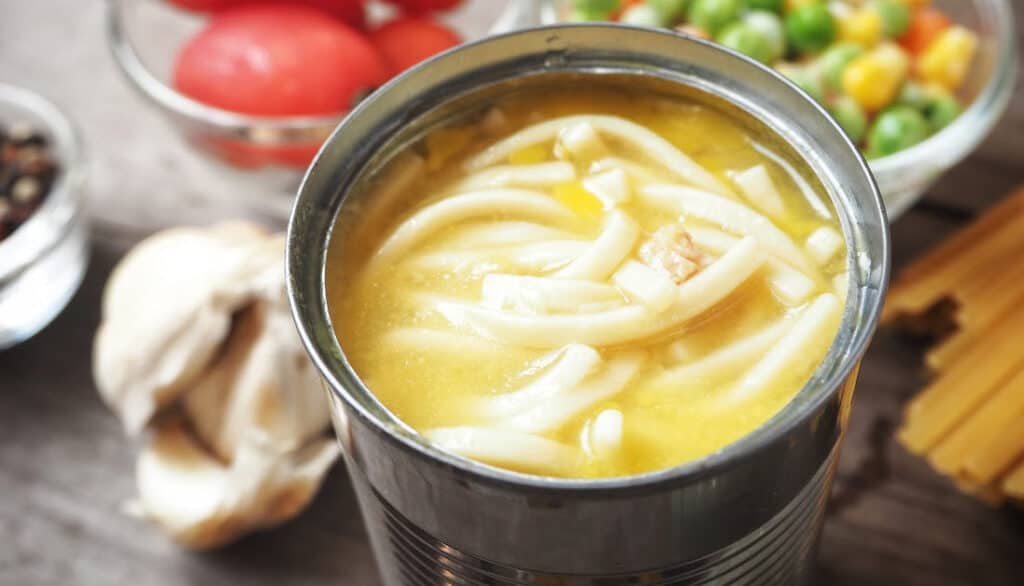
Homemade vs Store-Bought Chicken Noodle Soup
The Benefits of Homemade Chicken Noodle Soup for Your Dog
If you’re interested in feeding your dog chicken noodle soup, making it yourself is the best option. Homemade chicken noodle soup allows you to control what goes into your dog’s food and customize it to meet their specific dietary needs.
Plus, it’s a great way to repurpose leftover chicken and vegetables from your own meals. One of the biggest benefits of homemade chicken noodle soup is that you can skip any harmful ingredients commonly found in store-bought soups.
These include high levels of sodium, preservatives, and additives that can be harmful to dogs. By using fresh ingredients at home, you can ensure that your dog is only getting healthy nutrients.
Another advantage of homemade chicken noodle soup is that it can be a fun bonding experience with your furry friend. They’ll love being included in the kitchen while you prepare their meal and appreciate the extra effort you put into making something delicious and nutritious just for them.
The Drawbacks of Store-Bought Chicken Noodle Soup for Your Dog
While store-bought chicken noodle soup may be convenient, it’s not always the best option for dogs. Many brands contain ingredients that are harmful or unnecessary for dogs to consume, including added sugar and salt.
Additionally, store-bought soups often include onion or garlic powder as flavorings, both of which are toxic to dogs in even small amounts. It’s crucial to read labels carefully before giving any store-bought soup or broth to your dog.
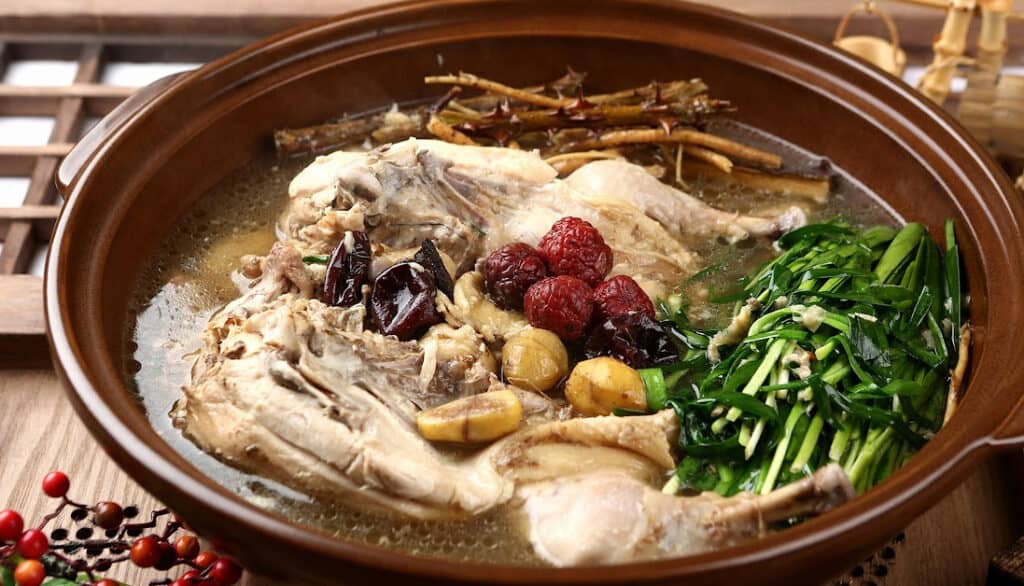
Tips on How to Make a Dog-Friendly Version at Home
Ingredients to Include in Your Homemade Chicken Noodle Soup
When crafting a dog-friendly version of chicken noodle soup at home, there are several ingredients you should consider including. These include lean chicken, carrots, celery, and noodles made from healthy grains like quinoa or brown rice. Other nutritious ingredients that you may want to add include sweet potatoes, green beans, and peas.
However, it’s important to remember that not all vegetables are safe for dogs to consume. Do your research on what foods are safe for canines before adding them to your soup.
Ingredients to Avoid in Your Homemade Chicken Noodle Soup
While there are many ingredients that can be good for dogs in chicken noodle soup, there are also several that should be avoided. Onions and garlic are toxic to dogs and should never be included in their food. Additionally, avoid using chicken bones as they can splinter and cause choking or injury if swallowed.
Spices such as pepper or chili powder may also cause discomfort for some dogs. If you want to add flavor to your soup without risking harm to your dog, try using herbs like parsley or basil instead.
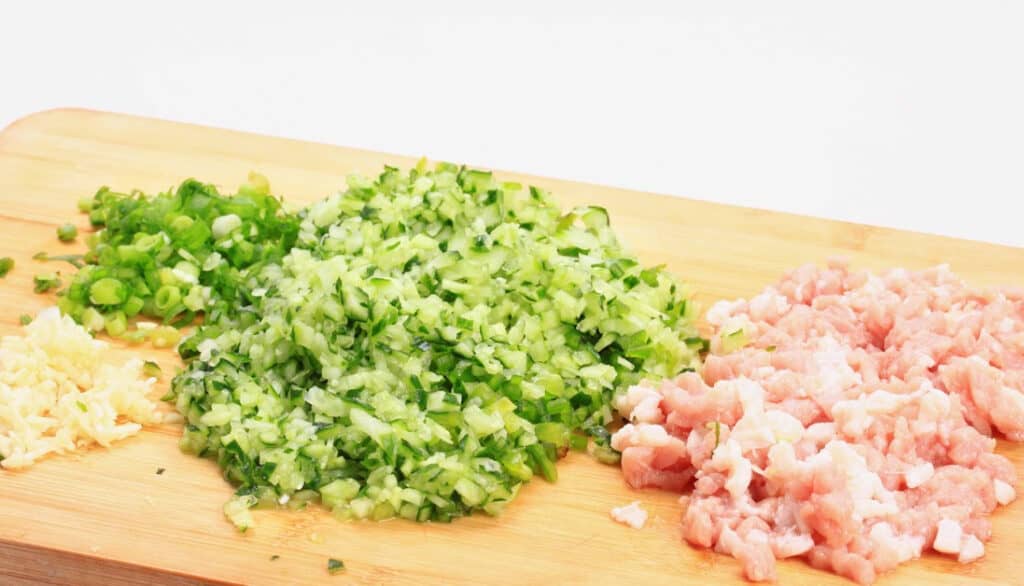
How to Make Homemade Chicken Noodle Soup for Your Dog
Making homemade chicken noodle soup is easy and customizable. Start by cooking chopped vegetables in a pot with a small amount of oil until they’re tender.
Then add shredded cooked chicken and low-sodium broth (chicken- or beef-based) before bringing everything to a boil. Once boiling, reduce the heat and let the soup simmer until the noodles are cooked through.
Check the seasoning of the broth; if it needs more flavoring add herbs such as rosemary. Remember: portion control is key!
As much as we humans love giving our furry friends treats from our own plates – too much food will make them sick! Only give a small amount of this delicious meal per serving so they can enjoy it without overdoing it.
Homemade chicken noodle soup is an excellent way to provide your dog with a nutritious and delicious meal. You’ll be able to control what goes into their food, avoid harmful additives, and create a fun bonding experience with your furry friend. With a few simple ingredients and a little love, you can create a healthy version of this classic comfort food for your furry friend to enjoy.
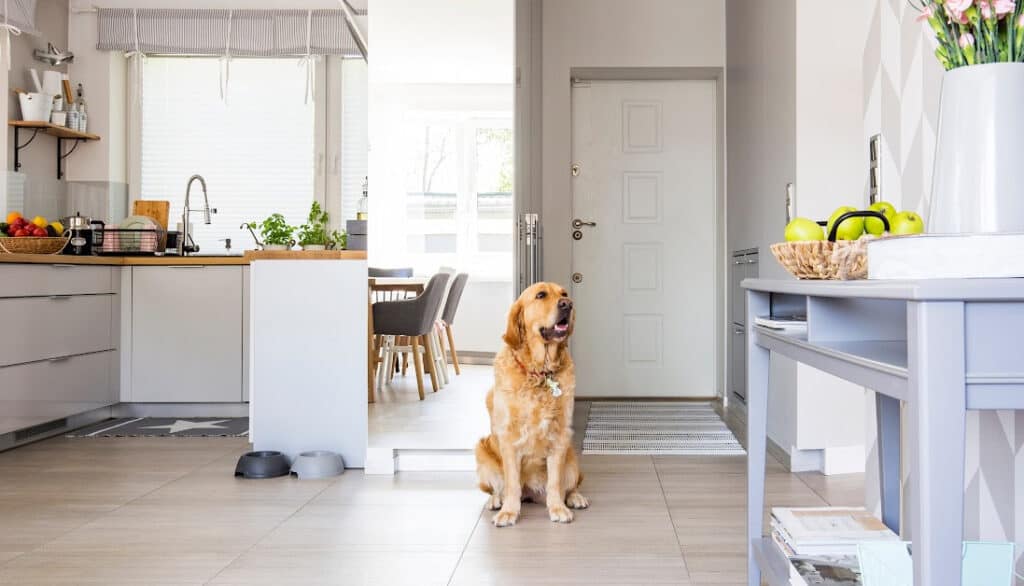
Recap of Main Points
Throughout this article, we’ve discussed whether or not dogs can eat chicken noodle soup. The short answer is yes, but there are some important things to keep in mind if you want to share your soup with your furry friend.
Firstly, it’s crucial to be mindful of the ingredients in the soup. Garlic and onions are toxic to dogs and should be avoided at all costs.
Additionally, you’ll want to look out for other ingredients that may cause harm to your dog such as spices or high levels of sodium. Secondly, portion control is key when it comes to feeding your dog chicken noodle soup.
While small amounts can be beneficial for their health, feeding them too much could lead to digestive issues such as diarrhea and vomiting. Homemade chicken noodle soup is always the best option for your dog since store-bought options often contain preservatives and other unnecessary additives that aren’t good for pets.
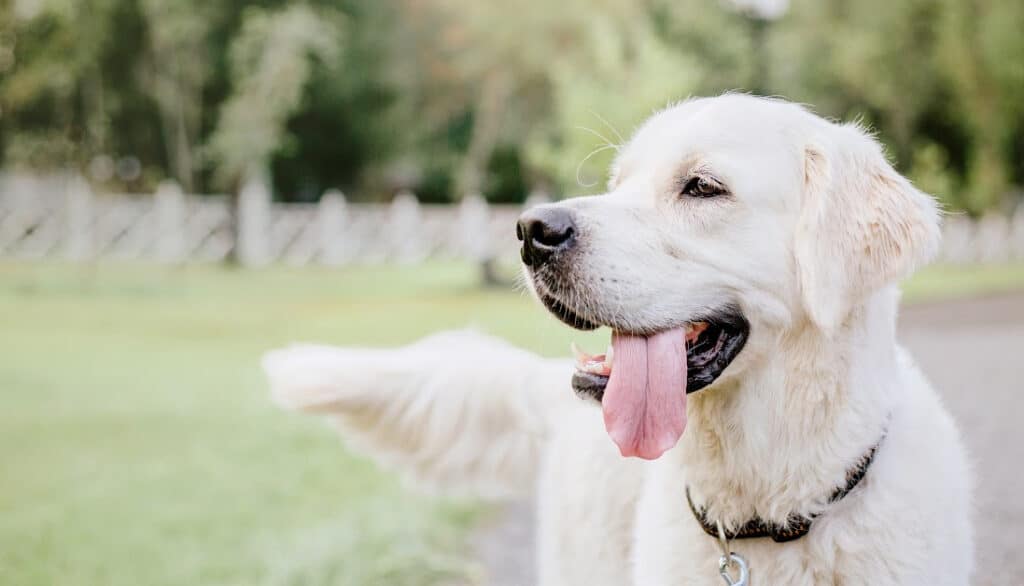
Final Thoughts on Feeding Your Dog Chicken Noodle Soup
Dogs can safely eat chicken noodle soup as long as it’s made with their health in mind. Whether it’s homemade or store-bought, make sure you’re checking the ingredients carefully before serving any food to your pet.
While chicken noodle soup has many benefits for dogs such as aiding digestion and boosting their immune system, it’s still important not to overdo it. Moderation is key when it comes to sharing human food with our furry friends.
At the end of the day, feeding your dog chicken noodle soup can be a great way to show them some love and care – just make sure you’re doing so responsibly! As always when adding new foods into your pet’s diet consult with a veterinarian first so they can advise more specifically according to the needs of each pet.
~Lindsie
